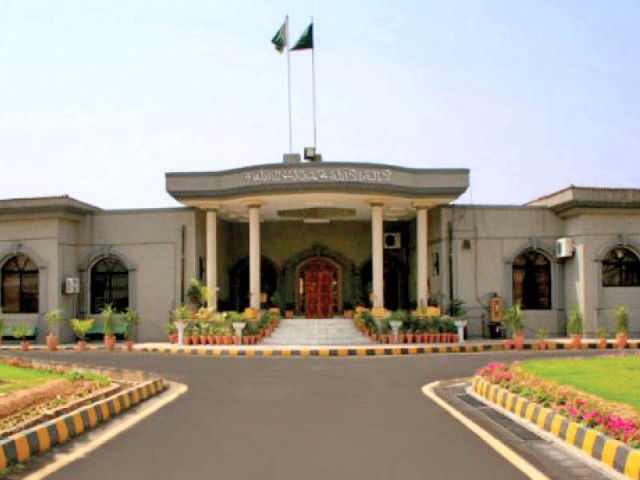
A division bench comprising Justice Noorul Haq Qureshi and Justice Athar Minallah dismissed the appeal last week observing that “the petitioners had apparently come to get an illegal favour from the court”.
“This court observes with great concern and pain that officials of the Estate Office are promoters of corruption and corrupt practices,” a single-bench comprising Justice Shaukat Aziz Siddiqui had noted in his order in 2014.

The decision had come during the hearing of a petition filed by Akhtar Ali, a tenant of a house allotted to a government official Sadia Yaqoob at Rs7,000 per month.
Ali was forced to move court after an altercation over payment of utility bills with the landlord.
The court had further noted that a number of government employees were on a general waiting list for the last four decades and despite reaching twilight of their careers; no official accommodation had been allotted to them.
The order stated, on the other hand, some government employees through manoeuvering and exercising their influence, obtained official accommodations and rented out the same, which obviously was not only illegal but also came under the definition of criminal breach of trust.
It added that the moment any government employee violated the conditions of allotment, he not only loses his right to retain the same but also made himself liable to penal action.
“This cheating even makes the government employees liable for dismissal from service,” the court had stated in its earlier order.
The court had ordered the Estate Office to cancel the allotments of government housing to those employees who had sublet their accommodations to other individuals working in the private sector.
Justice Siddiqui had also directed the Capital Development Authority (CDA) to demolish all illegal extensions made to official houses.
In the ICA, the counsel for seven petitioners said that the single bench went beyond the scope of the petition and the prayer made therein, adding that the court took a suo motu notice of the alleged unlawful use of the official accommodations.
The counsel said that the petitioner had prayed for restoration of electricity, water supply and Sui gas connections with further direction to restrain the respondents to exert undue pressure and influence upon the said petitioner to vacate the premises.
A reading of the said prayer clause reveals that it was not a case of the said petitioner to seek any direction or any writ whatsoever against all the occupants of the official accommodation in any manner whatsoever.
He alleged that the court did not exercised justly, fairly and in accordance with the dictums laid down by the Supreme Court.
In addition, the counsel said, the verdict was based on misreading and non-reading of the material on record as well as without application of independent judicial mind.
He had prayed to set aside the order.
According to the bylaws that govern official accommodations, occupants cannot build additional wings, but this is a common practice now and visible in different sectors of the capital.
The occupants of official housing raise these illegal structures on the roofs, courtyards and even the green belts but they somehow go unnoticed.
Published in The Express Tribune, April 4th, 2016.

1722586547-0/Untitled-design-(73)1722586547-0-165x106.webp)


1732326457-0/prime-(1)1732326457-0-165x106.webp)












COMMENTS
Comments are moderated and generally will be posted if they are on-topic and not abusive.
For more information, please see our Comments FAQ